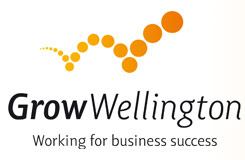 “It was a dark and stormy night”. That’s how my Grandad used to begin his bedtime stories when I was a little lad. He was both a technology innovator and an entrepreneur, so hopefully some of it rubbed off on me. There’s certainly a lot to be said in favour of story-telling and narrative as a means of passing on knowledge.
“It was a dark and stormy night”. That’s how my Grandad used to begin his bedtime stories when I was a little lad. He was both a technology innovator and an entrepreneur, so hopefully some of it rubbed off on me. There’s certainly a lot to be said in favour of story-telling and narrative as a means of passing on knowledge.
Tuesday this week the Bright Ideas Challenge team from Grow Wellington are putting on Entrepreneur Storytime, an evening of anecdotes and stories from a diverse and successful group of local entrepreneurs. Speakers include Mark Clare – investment banker and web entrepreneur, Rachel Taulelei – founder of City Market and chairperson Wellington On A Plate, also Geoff Todd – CEO of both Trinity Bioactives and Viclink and CreativeHQ chairperson. Other speakers include Trent Mankelow who is a highly successful graduate of the CreativeHQ business incubator and Derelee Potroz-Smith, a finalist from last year’s Bright Ideas Challenge.
I’m particularly interested to hear Geoff’s story since he is a man with a foot in the camps of both academia and business, a rare and important breed of individual that New Zealand urgently needs at present. But it looks like an inspirational lineup overall and everybody is welcome to attend this free event. Registration essential.

 It’s exciting being at the forefront of innovation in your industry and riding a growth wave. But there are dangers lurking in the breakers for service oriented web companies with big goals.
It’s exciting being at the forefront of innovation in your industry and riding a growth wave. But there are dangers lurking in the breakers for service oriented web companies with big goals. Plastic Logic, a company founded to commercialise research from Cambridge University recently secured one of the largest venture capital funding rounds of any company globally. But it has not always been plain sailing for the business which aims to devise and manufacture consumer applications for plastic semi-conductors based on organic polymers.
Plastic Logic, a company founded to commercialise research from Cambridge University recently secured one of the largest venture capital funding rounds of any company globally. But it has not always been plain sailing for the business which aims to devise and manufacture consumer applications for plastic semi-conductors based on organic polymers. Over the last year or two I’ve learnt a lot about banks and especially the ways in which they don’t serve their customers. When are we going to build a technology that solves this pain?
Over the last year or two I’ve learnt a lot about banks and especially the ways in which they don’t serve their customers. When are we going to build a technology that solves this pain? Ever since the movie Minority Report hit our screens we’ve all been fascinated by the promise of touch screen technology. I think touch tech is going to be big this year, which is one reason why I’m currently working with a young entrepreneur on an interesting project involving tablets. More about that soon. In the meantime, there are other companies in New Zealand that are already well advanced in this field.
Ever since the movie Minority Report hit our screens we’ve all been fascinated by the promise of touch screen technology. I think touch tech is going to be big this year, which is one reason why I’m currently working with a young entrepreneur on an interesting project involving tablets. More about that soon. In the meantime, there are other companies in New Zealand that are already well advanced in this field.



 Global Entrepreneurship Week has rolled around already and Unlimited Potential is once again doing it’s bit to promote technology entrepreneurship as a career option. I’ll be working hard this week on a few last minute details for our
Global Entrepreneurship Week has rolled around already and Unlimited Potential is once again doing it’s bit to promote technology entrepreneurship as a career option. I’ll be working hard this week on a few last minute details for our